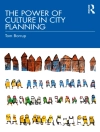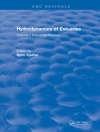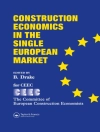This book delves into the specific subject area of life sciences, focusing on the remarkable world of millets and their multifaceted contributions. This book serves as a comprehensive guide to the diverse aspects of millets, addressing their biology, significance, functional potential, and applications.
The content in this book is divided into two distinct sections, Section I contains the detailed introduction to the Millets, their biology, classification, applications, and various types (major, minor, and pseudo millets) and Section II contains their safety, extraction, industrial applications, and SDG goals.
This book is not only an asset for professionals and experts but also a readable guide for Academicians and advanced students looking to engage with this ever-expanding subject area. The book is a boon for entrepreneurs in the area millets, as they will get the complete comprehensive information about all the different types of millets with their biology, functional potential and processing.
Inhaltsverzeichnis
Part I. Introduction to Millets: types, functional potential and sustainability.- Chapter 1. Millets: biology, classification & applications.- Chapter 2. Millets: the ancient grains for modern health.- Chapter 3. Millets: A Climate-Resilient Nutricereals for Mitigating Hidden Hunger and Provide Nutritional Security.- Chapter 4. Pearl Millet: biology, functional potential & sustainable utilization.- Chapter 5. Finger Millet: biology, functional potential & sustainable utilization.- Chapter 6. Sorghum: biology, functional potential & sustainable utilization.- Chapter 7. Foxtail Millet: biology, functional potential & sustainable utilization.- Chapter 8. Kodo Millet: biology, functional potential & sustainable utilization.- Chapter 9. Barnyard Millet: biology, functional potential & sustainable utilization.- Chapter 10. Little Millet: biology, functional potential & sustainable utilization.- Chapter 11. Porso Millet: biology, functional potential & sustainable utilization.- Chapter 12. Amaranthus: biology, functional potential & sustainable utilization.- Chapter 13. Buckwheat: biology, functional potential & sustainable utilization.- Part II. Processing, Industrial applications, Biofortification & sustainable goals.- Chapter 14. Bioactive Peptides of Millers: A comprehensive study.- Chapter 15. Secondary Processing technologies of nutricereals.- Chapter 16. Agronomic Biofortification of Millets: a new approach to mitigate malnutrition.- Chapter 17. Millets: A Nutritious and Cost-Effective Solutions for Animal and Poultry Production.- Chapter 18. Millets! A way to good health and well-being among Gen Z.- Chapter 19. Role of Multi-cereal in Nutritional Strategies in Children with Autism.- Chapter 20. Harvesting Health: Unlocking the nutritional wealth of millets.
Über den Autor
Dr. Monika Thakur is working as Professor at Amity Institute of Food Technology, Amity University, Uttar Pradesh, India. She is currently engaged in the development of functional foods, and extraction of bioactive components. She was awarded Ph D in 2006 by Himachal Pradesh University. She is Double Gold Medalist (MSc and MPhil) and received several prestigious awards, including Post-Graduate Studies Himachal Pradesh (2004), Himalayan Research Scholar Association (2007), Wiley Research Academy (2017), Young Scientist Award, IITT (2020), Best Speaker Award (2020, 2021), Young Researcher Award (2021), Best Paper Presentation (2023 Nutricon Malaysia) and NAVDHARA 2024. Apart from her teaching assignments, she has been involved in various research and extension activities. She has guided more than 30 dissertations, and 3 students have completed Ph D under her guidance. She is a member of editorial board and reviewer in journals of national and international repute. She has published more than 60 publications, 35 book chapters, 10 books (authored + edited), and a compendium; holds 2 patents and 3 copyrights; has presented more than 70 papers; has established 2 industrial consultancies; has conducted 3 technology transfers; and has sanctioned DST (TISAN) and MSME projects. She has also organized various training programs, faculty development programs, international conferences, and national seminars. Her research interests include plant sciences, phytochemicals, functional foods and nutraceuticals, mycology, food microbiology and food safety, development of functional food products, and related areas.












